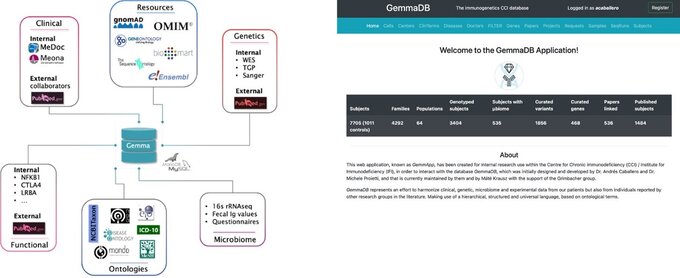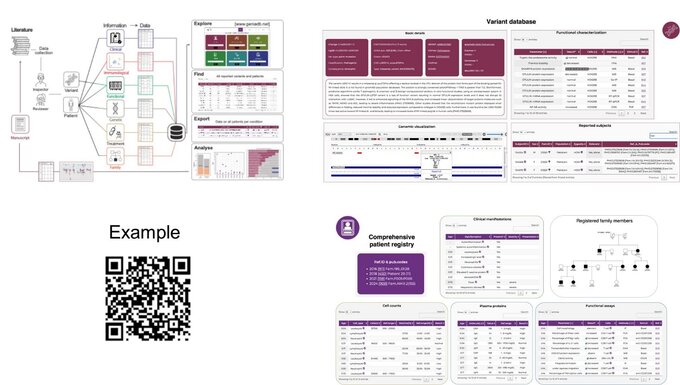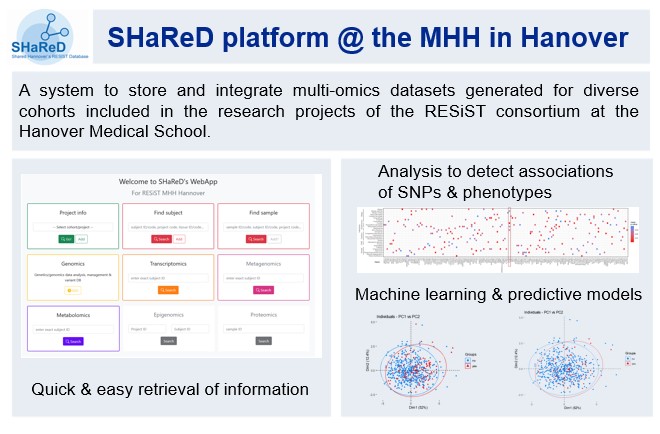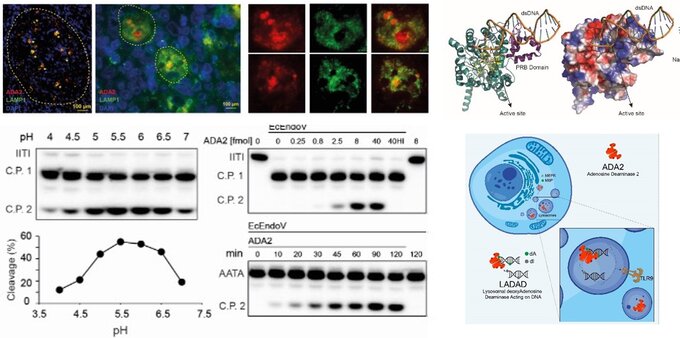Research Group "Data-Driven Immunogenomics Lab (DDIL)"
Prof. Dr. Michele ProiettiThe AG Proietti has two distinct divisions, each with its own focus. By combining the strengths of both arms, this laboratory aims to contribute to the field of genomics and immune research, leveraging computational tools to support and enhance experimental findings.
Division Computational and Data Analysis Arm
Here, we focus on genetic and genomic data analysis and the development of tools, databases, and applications for research data management and analysis. Our work aims to improve the genetic diagnosis in patients with suspected inborn errors.
We have several expertise that allow us to perform a wide range of bioinformatics tasks, from raw data processing to advanced analysis and visualization, while also developing custom software tools and databases to support their research.
Over the years, we have developed:
Division of Wet Lab Research Arm
This arm investigates the role of genes regulating nucleic acid sensing in humans. Their research aims to understand how these genes can be responsible for immune diseases. Their work's key aspects include Studying nucleic acid sensing's molecular mechanisms. Investigating the genetic basis of immune disorders. Conducting experiments to elucidate gene functions and pathways
Recently, we have made a significant breakthrough:
We have discovered a new and unexplored pathway related to nucleic acid sensing and immune response. We have found that ADA2 is a lysosomal protein that binds DNA and efficiently deaminates deoxyadenosine (dA) residues of DNA to deoxyinosine (dI), suggesting that DNA is its natural substrate. We also found that dA-to-dI editing of DNA and ADA2 facilitates immune detection of DNA mediated by Toll-like receptor 9 (TLR9).
By elucidating ADA2’s role in DNA sensing and metabolism, this study expands our understanding of innate immunity and sheds light on potential therapeutic targets for autoimmune and autoinflammatory diseases. This finding opens up new avenues for understanding immune diseases and potentially developing novel therapeutic approaches (https://www.cell.com/cell-reports/fulltext/S2211-1247(24)01250-6).

Center for Chronic Immunodeficiency
at Center for Translational Cell Research
Breisacher Str. 115
79106 Freiburg
Germany





